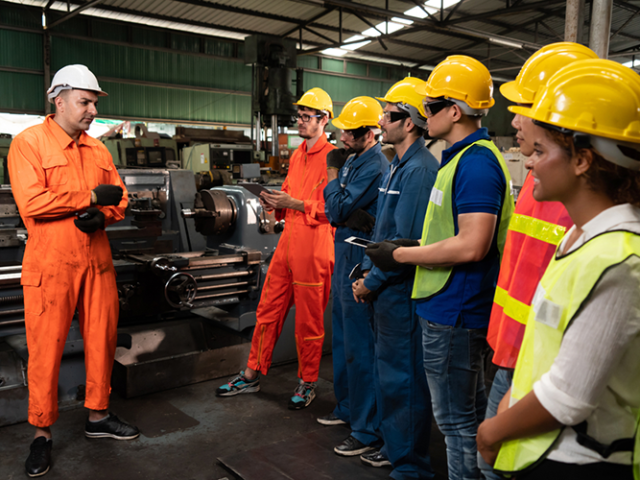Artificial intelligence (AI) is getting closer to creating a computer that’s equivalent in intelligence to human beings. Google’s Ray Kurzweil predicts this could be as early as 2029. Elon Musk believes it will happen in the next five years.
Written by Pat wan Wyk, Head of People, Culture and Communications at Royal HaskoningDHV.
When it happens, we’ll see exponential growth in technology development on a scale we can’t even imagine today. This will have huge effects on the engineering field; AI can already design structures in minutes, which usually would take weeks or months.
At the same time, we’re faced with more complex challenges, including climate change, responsible resource consumption, and sustainability for future generations.
As a result, there’s a new generation of engineers emerging. While technical expertise is still crucial, the engineer’s role has evolved into one of connector, communicator, and change-maker – which requires an entirely new, yet complementary, mindset and skill set.
These are the skills we look for when hiring young engineers and how you can develop them.
Conscious collaborators
Diversity is everything in engineering. It encourages bigger-picture thinking and forces us to challenge our beliefs and worldviews and to respect, accept, and appreciate the perspectives and experiences of people from different backgrounds.
Our customer base is diverse, and we aim to ensure that our organisation reflects the people and communities we serve. We work with stakeholders in the public and private sectors; more women are taking on leadership roles in the industry, and more young people are becoming decision-makers in their firms. You need to be able to talk to and work with people from all walks of life.
- Get out of your comfort zone. Try to meet people from different genders, races, backgrounds, and sexual orientations. Ask someone you wouldn’t usually talk to what they think. This will help you find new mentors and confidants.
- Take off the blinkers. Keep an open mind during these engagements and try to appreciate the unique perspectives these people bring to your projects. If something doesn’t make sense to you, keep asking ‘why’ until it does.
Different thinking matters, especially when we add in the competing challenges faced in South Africa, including infrastructure degradation, rising inequality, and a decreasing standard of living, especially for poorer households and rural communities. To truly understand how we can make a difference in these people’s lives, we must understand their points of view. The worst thing we can do is assume we know better.
Compelling communicators
Engineers must design new and innovative solutions to complex challenges, and they will need buy-in from their clients and various stakeholders. The success of these projects is often determined by how well they communicated – from gaining buy-in at the outset to ensuring clear communication throughout the project and beyond.
And because there are many “non-engineer” decision-makers in stakeholder groups, it has never been more important to set a vision, explain complicated details in simple terms, and keep everyone on the same page.
- Become a better communicator. Read books, listen to podcasts, and register for free online courses on communication best practices in business.
- Practice. Grab opportunities to present during internal engagements and speak up in meetings. The more you do it, the easier it becomes.
- Imitate the greats. Look at the influencers and speakers in your company and industry. Why do you enjoy listening to them? What do they do differently? Take note and put these strategies into action.
Since engineers work across teams, internal collaboration and communication are becoming increasingly crucial for project success. Engineers of the future must be open to learning how to communicate effectively, both internally and externally.
Lifelong learners
It might be comforting to feel like you’ve reached an ‘expert level’ at what you do. However, regardless of how ‘senior’ they are, the future engineer must be comfortable with feeling like a beginner and have a strong desire to keep learning.
- Cultivate a growth mindset. Explore industries and topics that fall outside of engineering, but that also impact what you do, such as anthropology, psychology, philosophy, and art, and understand the interconnections and interactions between them.
- Learn from others. Learning from colleagues in the same and different departments is so essential. This involves a willingness to be vulnerable, to ask for help, and to have the courage to say, “I don’t know the answer; can you help?”.
- Share your knowledge. Be aware of the “curse of knowledge,” a cognitive bias that happens when you assume the person you are talking to already knows enough to understand what you mean.
Learning is no longer linear; the most successful will be those who can learn, unlearn, and relearn.
Final word
Engineering is an exciting career for young people seeking meaningful, purposeful work.
The industry needs engineers who know what’s happening in the world, can work efficiently with all kinds of people, grasp opportunities, and take the initiative to speak up and challenge the status quo – especially as technology takes on more of the grunt work.




